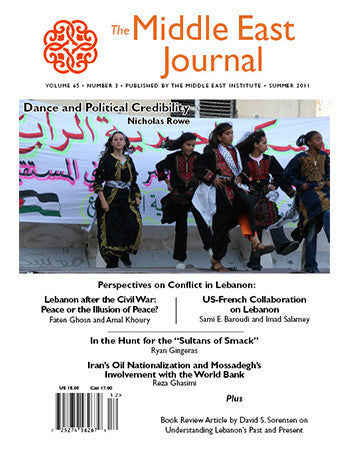
JORDAN TIMES
Memories of the American Colony
The American Colony, now East Jerusalem's most luxurious and expensive hotel, has a long, conflicted history that illuminates what has happened in Palestine over the past 130 years. Whenever I go to Jerusalem, I pay a call on the Colony, pause to scan the courtyard where customers sip coffee or dine under sheltering umbrellas, and drop by for a chat with Munther Fahmi, proprietor of the bookshop tucked between the souvenir store and the cafe.
My most enduring memory of the Colony dates back to late May 1967 when my husband and I stayed there just before the Israelis attacked Egypt, Jordan and Syria and invaded and occupied East Jerusalem, then under Jordanian rule. After a late dinner we walked into the Old City through Damascus Gate. We paused and bought hot rounds of bread at the head of Khan az-Zeit and fed bits to intrepid donkeys trotting along the narrow shuttered street. The unsupervised donkeys bore panniers of rubble on their backs an? clearly knew where they were going to deposit their loads before returning for more. The source of the rubble was the Church of the Holy Sepulchre, then undergoing renovation. It was a rare peaceful moment in a bitterly contested city.
The story of the American Colony, Anna's House, by Odd Karsten Tveit, a Norwegian radio correspondent who covered this region for many years, provides a fresh perspective on the turbulent history of the holy city since the Colony was established. Originally published in Norwegian, as "Annas Hus," the book has been translated into English by Peter Scott-Hansen and brought out by Rimal Publications, based in Cyprus.
Anna, heroine of the story, was born in 1842 on the west coast of Norway. In 1846, her father, a carpenter, and stepmother emigrated to the US along with their youngest children. They settled in Chicago where Anna eventually met and married Horatio Spafford, a Yankee lawyer and preacher. The couple had four daughters before the 1871 fire devastated Chicago and wrecked Spafford's business. Depressed, Anna set off for Paris on a French vessel that sunk when rammed by a British warship. Anna survived but her girls drowned.
Treated as though they were responsible for their misfortunes by their local Presbyterian church, the Spaffords turned away from established Christianity and in 1881 founded a small congregation known, appropriately, as "Overcomers." Later that year the couple, two daughters born since the ship tragedy, and a handful of followers left Chicago for Jerusalem in the belief that Jesus would soon return to the holy city. They rented a house just inside Damascus Gate and began to acquaint themselves with Palestine under the Ottoman Empire.
It is significant that the "Overcomers" and other messianic Christians arrived in Palestine at the same time messianic Jews sought to "return to Zion" and began to establish their presence in the country in spite of considerable opposition from native Palestinians and from Ottoman Caliph Abdel Hamid II. The presence of incoming Jews confirmed the mistaken belief of many Christians that the "Second Coming of Christ" was at hand. This attitude still colours the view of Christian fundamentalists who support ?he Zionist/Israeli cause.
The "Overcomers," led by Spafford, were not Christian missionaries determined to convert Palestinians and others to Christianity. The "Overcomers" did not attend services in local churches but worshiped on their own premises. They lived as a community sharing the little they had and practicing celibacy, attracting the disapproval of both missionaries and Western diplomats, particularly the US consul. The sect gradually became involved with the local Palestinian and Jewish communities, providing food and medical aid during times of plague and pestilence.
The small community grew and Anna, an assertive woman, assumed increasing spiritual and temporal authority. She bought a grand house belonging to Rabah Husseini, a senior member of Jerusalem's leading family. The stone-built mansion with a red tile roof and handsome central courtyard, today's hotel, not only provided space for fresh converts from Sweden but also offered lodgings to Christian pilgrims visiting the holy city.
This "house" rather than the building in the Old City became "Anna's House." With the death of her husband in 1888, she became the matriarch of the Colony. Anna, who claimed to receive messages from God, was narrowminded, autocratic, and sometimes vindictive. But the Colony's good works won her respect. Her daughters, Bertha and Grace, gradually assumed key roles in the management of the Colony's affairs. Bertha's marriage to Frederick Vester, another member of the sect, put an end to imposition of chastite on "Overcomers."
Infected by Christian and Jewish messianism and determined to secure territory in this region to protect the Suez Canal and colonial India, British politicians gave full backing to the Zionists whose state would serve as a base for Britain. As the Ottoman Empire was dismantled, Britain issued the infamous Balfour Declaration pledging to support the establishment of a "Jewish national home" in Palestine if granted a mandate by the League of Nations to rule this land.
Tveit shows that the Palestinians and Arabs never had the power to seriously challenge Britain's drive - supported by other Western powers - to settle European Jews in Palestine, thereby depriving its indigenous population of homeland, heritage, identity and independence.
Distressed by the conflict, Anna died in 1923, at a time violence raged between Jews and Palestinians. The American Colony survived Israel's 1948 war of establishment and spent 19 years under Jordanian rule before falling under Israeli occupation in 1967. Bertha, who had long been critical of the Zionist project, died in June 1968 well before the Israelis cut off East Jerusalem from its West Bank hinterland. I recall her sitting in a chair before the window in the small salon of the hotel. Her son Horatio,?a British trained lawyer, and his wife Val had much earlier taken over the modernising and running of the hotel, a modest, comfortable establishment. Val, the last of the Colony clan with connections to its founders, died in 2008.
Today the hotel, run by a Swiss firm, hosts big budget journalists, writers and tourists as well as politicians trying to reconcile Palestinians facing dispossession with their Israeli dispossessors.
Review by Michael Jansen for The Jordan Times, 28 July 2011



